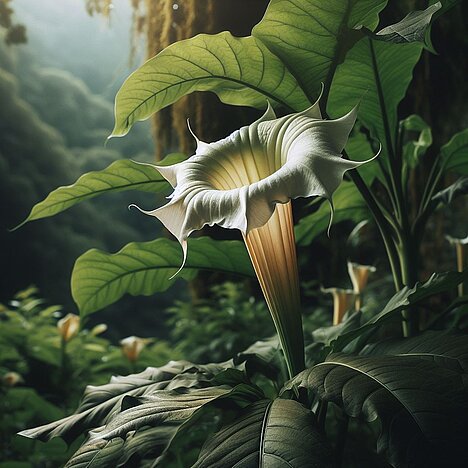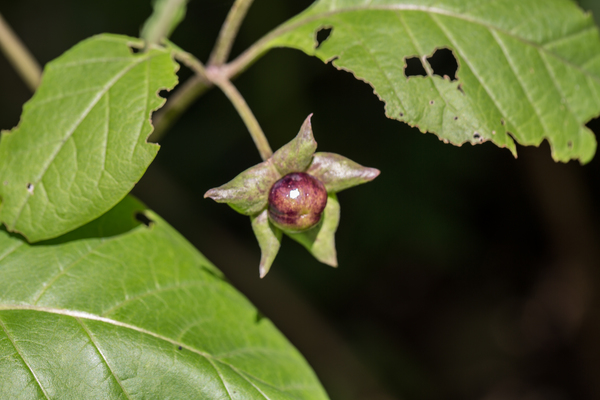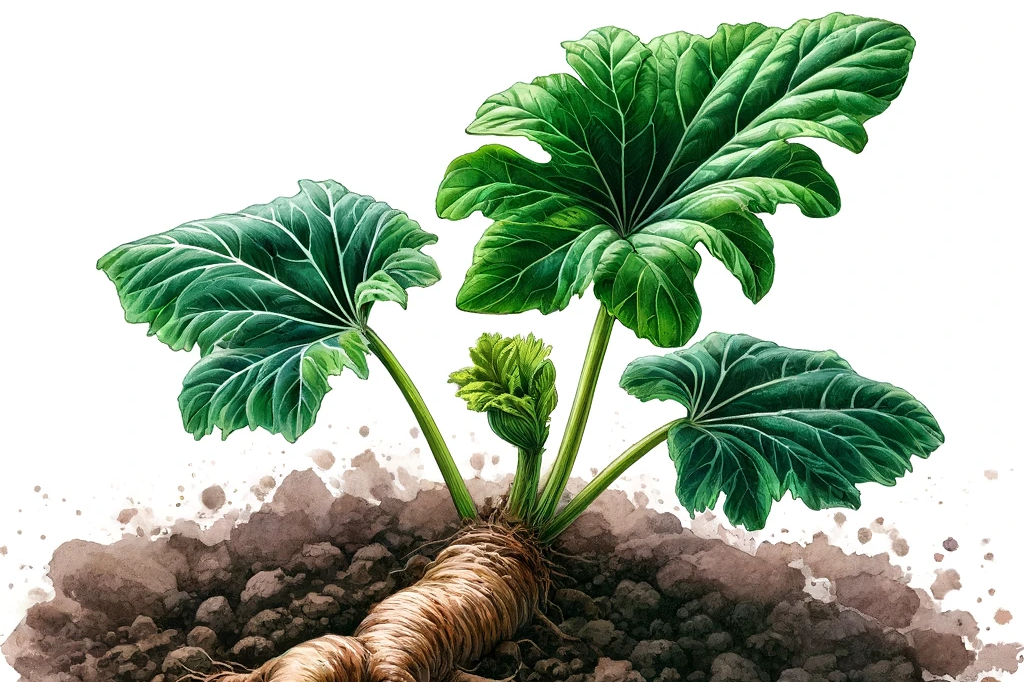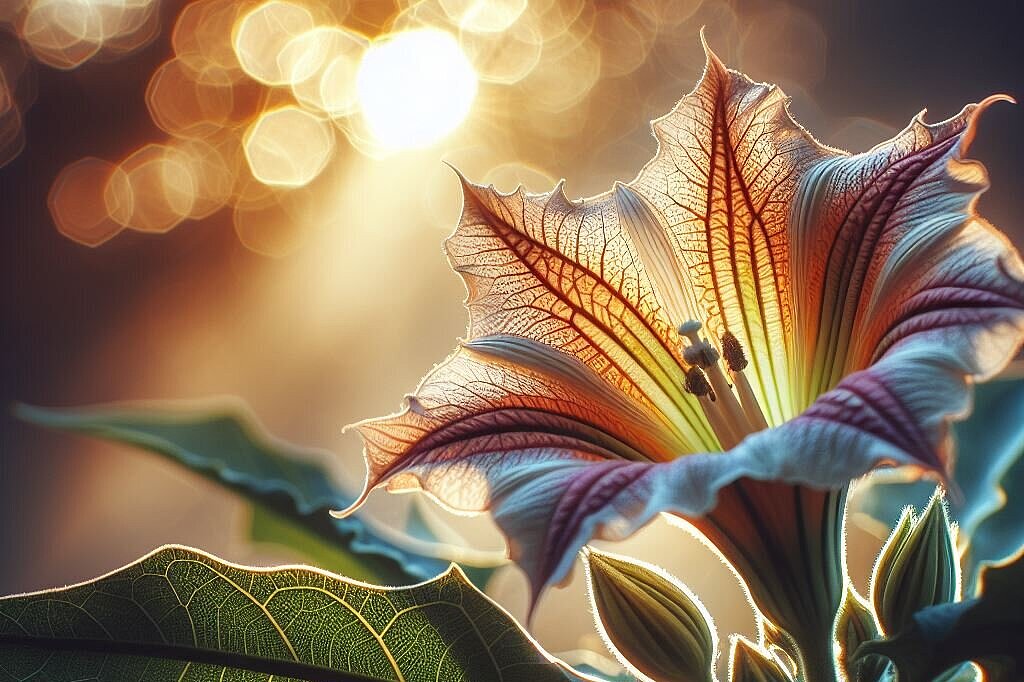Angel trumpets

What are angel trumpets?
Angel's trumpets belong to the nightshade family (Solanaceae) and are mainly native to South America. They are characterized by their large, trumpet-shaped flowers, which can shine in various colors from white and yellow to pink and red. Angel's trumpets are not only popular because of their visual appeal, but also because of their intense, sweet fragrance, which is particularly noticeable in the evening.
Advantages of the angel's trumpet
Aesthetic enrichment
Angel's trumpets are undoubtedly an asset to any garden or balcony. Their impressive flowers and beguiling fragrance make them a highlight in garden design.
A magnet for pollinators
The flowers of the angel's trumpet attract pollinators such as butterflies and some moths, which contributes to the biodiversity of the garden.
Disadvantages and risks for dogs
Toxicity
All parts of the angel's trumpet are highly toxic. They contain dangerous alkaloids such as scopolamine, atropine and hyoscyamine, which can lead to severe symptoms of poisoning in dogs. Even eating small amounts can be dangerous.
Symptoms of poisoning
Symptoms of angel trumpet poisoning include severe agitation, dilated pupils, dry mucous membranes, increased heart rate, seizures and, in severe cases, coma or death. If you suspect that your dog has eaten angel's trumpet, seek veterinary help immediately.
Not a safe ornamental plant for households with dogs
Due to their high toxicity, angel's trumpets are not a safe choice for gardens or homes where dogs live. Dogs' curiosity and playfulness can lead them to consume parts of the plant, which can lead to serious health problems.
Angel trumpets are undoubtedly a visual asset to any garden, but their beauty comes with significant risks for pets, especially dogs. The toxicity of the plant can lead to severe, potentially life-threatening poisoning, which is why it is not recommended in households with dogs. If you want to design your garden with safe yet attractive plants, there are many alternatives that pose no danger to your four-legged family members. It is always advisable to check the suitability and safety of new plants for pets before purchasing them to avoid accidents and health risks. Angel trumpets may be pleasing to the eye, but your dog's safety should always take priority.
If you notice any signs of hypersensitivity or poisoning in your dog, you should see your vet immediately. We are not a substitute for a vet, but we try to be as accurate as possible. Every dog reacts differently and we recommend you get a second opinion or consult your vet if in doubt.
Stay healthy and take good care of your four-legged friend!😊
Similar to Angel trumpets
Belladonna (Atropa belladonna) is a perennial shrub from the nightshade family. It can grow up to two meters high and has egg-shaped leaves and bell-shaped flowers, which are brown-purple on the...
Mandrake (Mandragora) is a genus in the nightshade family (Solanaceae) known for its deep roots in mythology and medical history. The plant is characterized by its large, dark green leaves,...
Black henbane belongs to the nightshade family(Solanaceae) and is native to Europe, Asia and North Africa. The plant is easily recognizable by its sticky, serrated leaves, the funnel-shaped, often...
Datura is a member of the nightshade family, like the potato or tomato. It grows as an annual herb up to one meter high and is widespread in many parts of the world. It is sometimes cultivated as an...



